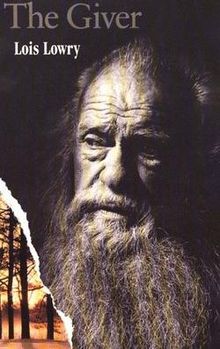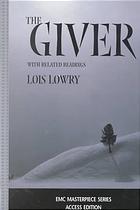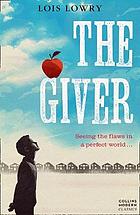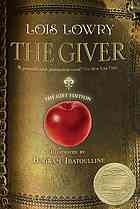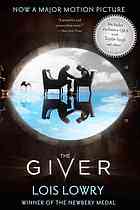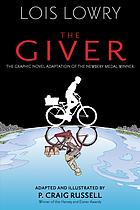The acclaimed novel The Giver by Lois Lowry was first published in 1993 by Houghton Mifflin. This book tells the story of an eleven-year-old boy named Jonas who lives in a futuristic society. Jonas’ world is run by a group called The Elders who decide every aspect of everyone’s life. They choose who a person will marry, what job they will have, and if they will have children. In this society, everyone is equal: there is no war, pain, or poverty. However, there is also no individualism, emotion, color, joy, or love. Jonas is assigned the job “The Receiver of Memory” and is trained by a man known as The Giver. The Giver’s role is to pass down and store memories of humanity from before the society was formed. Jonas receives memories of joy, pain, war, love, sex, etc. and learns what emotion is. He also learns a dark secret about his world: The Elders kill the elderly, sick, and rebellious by lethal injection. When Jonas learns that an ill baby in his family’s care is going to be killed, he escapes the community with the child. The novel’s ending suggests that Jonas and the baby starve to death.
The Giver’s social critique has resulted in controversy and multiple attempts to ban it from schools. Lowry includes mentions of sex, infanticide, suicide, starvation, and euthanasia in order to show the power of the book’s main themes of suffering and individuality. The first notable banning case was in California in 1994. Parents complained of violent and sexual passages, and the book was temporarily banned. In 1995, parents in Montana challenged the book due to infanticide and euthanasia, and the school required parental permission before reading it. In 1999, it was challenged in both Ohio and Florida by parents because of infanticide, euthanasia, sexuality, and suicide. The book was also challenged in 2001 in Colorado because a father believed “those types of books sow the seeds of school shootings by encouraging suicide and disregard for human life”. After a long debate, the book was kept in the school.
Lois Lowry has responded to these bannings and challenges:
“I think banning books is a very, very dangerous thing. It takes away an important freedom. Any time there is an attempt to ban a book, you should fight it as hard as you can. It’s okay for a parent to say, ‘I don’t want my child to read this book.’ But it is not okay for anyone to try to make that decision for other people. The world portrayed in The Giver is a world where choice has been taken away. It is a frightening world. Let’s work hard to keep it from truly happening.”
Lois Lowry
Despite these challenges, The Giver enjoys critical acclaim and is one of the most popular children’s novels. It won the 1994 Regina Medal and the 1996 William Allen White Award. It also has been featured on ALA’s “Best Books for Young Adults” and was adapted to film in 2014.
About the Author
Lois Lowry is an American author who was born in Hawaii in 1937. As the daughter of an army dentist, she grew up all over the country and the world. She lived in New York, Pennsylvania, and Japan. She attended Brown University, but left to marry a Navy officer with whom she had four children. She settled in Maine where she completed a degree in English and went on to graduate school. An editor from Houghton Mifflin encouraged her to write a children’s book, which she published in 1977. Around this time, Lowry divorced her husband and moved to Massachusetts, where she continued to live and write novels. She has written many popular novels such as Gathering Blue, Messenger, Son, Gossamer, Number the Stars, and The Silent Boy. Number the Stars was challenged in Washington state due to the inclusion of the word “damn”, but The Giver remains her most controversial book by far.
